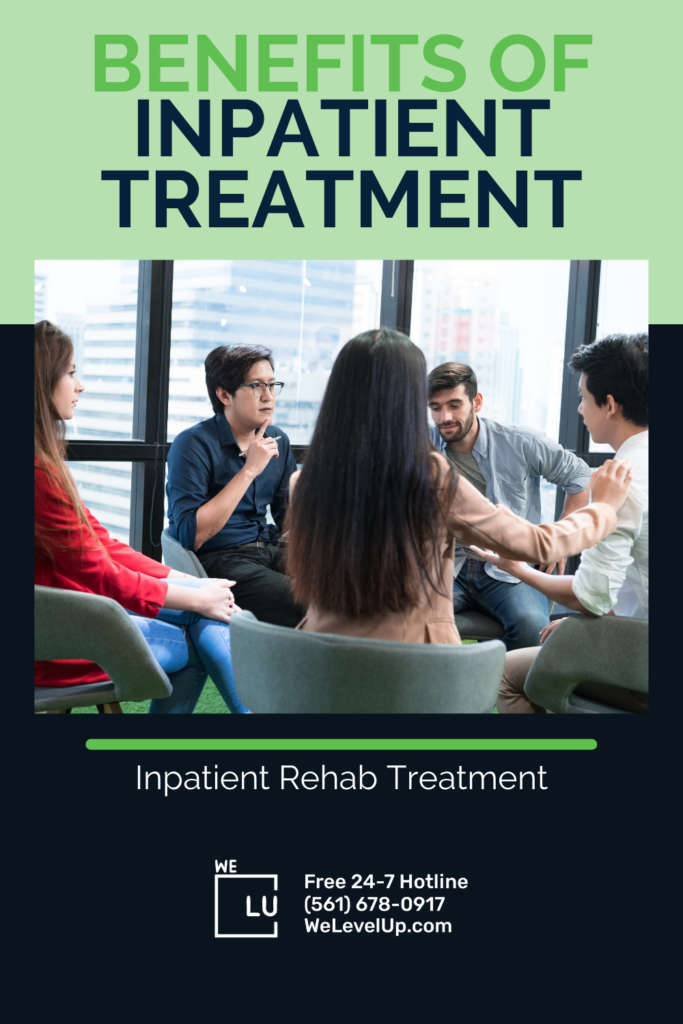What is an Inpatient Alcohol Rehab?
If you or someone you love is struggling with alcoholism and seeking help, you may benefit from an inpatient alcohol rehab center. Inpatient alcohol rehab centers are safe environments for individuals to rehab comfortably and effectively. Working closely with a personalized trained alcohol treatment center detox and addiction team, individuals will undergo various phases that will set them on the path to recovery from alcoholism.
Licensed and accredited inpatient alcohol treatment centers provide 24-hour supervised addiction care; patients benefit from a comprehensive, intensive, and therapeutic atmosphere designed to enhance recovery from alcohol use disorders. Professional inpatient alcohol treatment can help people struggling with alcohol addiction through a strategic mix from detox withdrawal to recovery therapies and interventions.
Types of Rehab Alcohol Inpatient Therapies
Inpatient alcohol rehab programs treat alcoholism through a combination of different treatment therapy. The below summary illustrates some of the more popular and effective methods for substance abuse recovery treatment typically found at inpatient alcohol rehab facilities.
- One-on-one & addiction group talk therapy.
- Cognitive Behavioral Therapy (CBT).
- Dialectical Behavioral Therapy (DBT).
- Motivational Interviewing.
- Online Therapy.
- AA 12-Step Programs.
- Art & Music Therapy.
- Yoga & Mediation Therapy.
Alcohol Rehab Center Inpatient Alcohol Detox
One of the first steps of the recovery process is getting the alcohol out of an individual’s system. Patients generally begin with a medically assisted alcohol detox. While staying at an inpatient alcohol rehab center, patients are medically supervised the entire time they detox from alcohol. Patients receive 24 hours a day, seven days a week alcohol detox center care to ensure their safety & comfort during the alcohol withdrawal process.
Our goal is to keep our guests as physically comfortable as possible as their bodies undergo the alcohol withdrawal treatment. Medical professionals are ready to assist in any way necessary. The goal is to minimize the side effects of alcohol detox treatment as much as possible.
Alcohol detoxification is the initial step before a more extended treatment program. Detoxification can be best safely conducted at inpatient vs. outpatient facilities. Round-the-clock medical monitoring is advised for heavy drinkers. In most circumstances, the detox process involves three steps:
- Intake. The medical team will review each incoming patient’s drug, medical, and psychiatric chronologies to understand each case thoroughly.
- Medication. Many detoxification programs incorporate drugs that emulate the effects of alcohol to lessen withdrawal symptoms. Medications may also target co-occurring disorders or help make withdrawal more comfortable for the patient.
- Stabilization. The patient undergoes medical and psychological treatments to balance the mind and body.
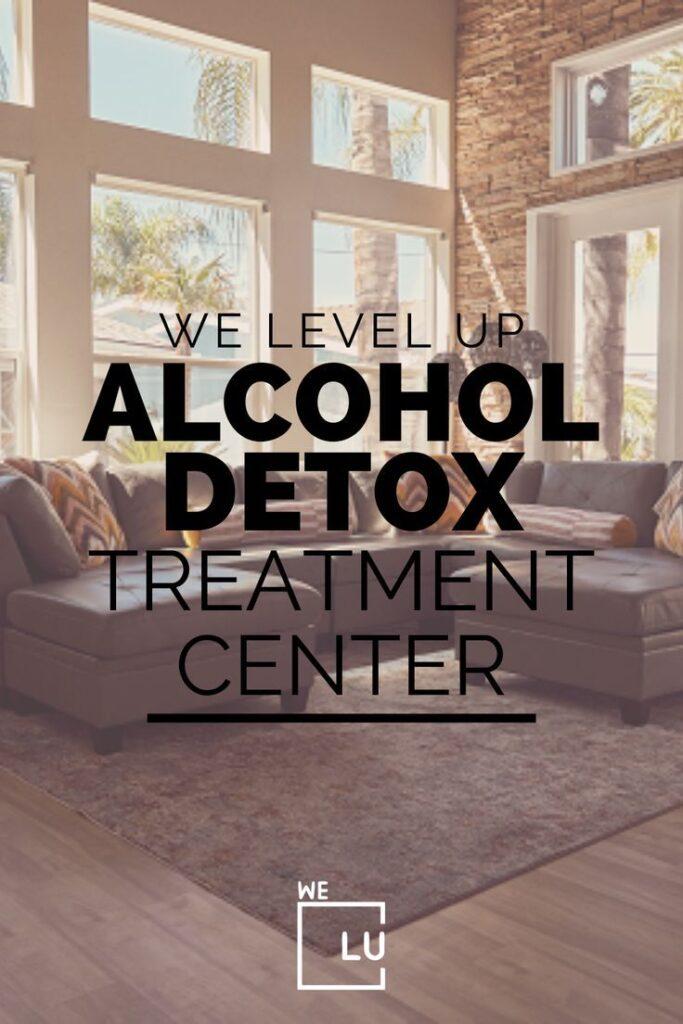
Individualized Inpatient Alcohol Rehab Treatment
After the detox phase, it is time to plan a treatment. Individuals meet with a dedicated care team to address specific needs and concerns. No two people are alike; therefore, no two recovery journeys are alike. Each treatment plan must be individualized for each person.
Inpatient Alcohol Rehab Programs
One of the most popular alcohol use disorder therapy methods is inpatient treatment. It entails entering a rehab program and staying there throughout your therapy. You may rest easy knowing medical aid and support is always available because you’ll have access to doctors and other specialists around-the-clock. Furthermore, a fixed timetable for an inpatient treatment program includes breakfast in the morning, therapies, counseling sessions, and activities for the rest of the day.
Anyone struggling with alcoholism can get treatment at an inpatient rehab center. However, there are several reasons and risk factors that affect the recommended treatments:
- Age.
- Mental health.
- Substance abuse.
- Medical history.
What are the 3 Stages of Alcoholism?
The three stages of alcoholism are established with the Jellinek Curve of Addiction chart and Milam and Ketcham’s description of the collapse of alcoholism. Understanding these stages is part of the therapy provided during treatment.
- Stage #1: Denial.
- Stage #2: Loss of control.
- Stage #3: Emotional and physical deterioration.
- Age: People over 60 tend to struggle more during the alcohol detox phase. The detrimental withdrawal symptoms can lead to complications and be fatal or life-threatening if not treated properly. An alcohol inpatient rehab facility will offer seniors exceptional medical care to overcome alcohol use.
- Mental health: A person suffering from alcohol addiction and a co-occurring mental health condition may need a personalized treatment plan. Inpatient alcohol rehabs have specialists on-site who can treat both conditions separately. Furthermore, counseling sessions will teach the individual how to cope with real-world circumstances and prevent falling victim to triggers that lead them to drink again.
- Substance abuse problem: Mixing alcohol and drugs can lead to hazardous interactions. Individuals who want to overcome drug and alcohol abuse should seek professional medical support. Treatment professionals monitor health conditions closely, relieve any harmful withdrawal signs and symptoms and provide assistance through each phase of the recovery process.
- Medical history: Inpatient alcohol rehab treatment is often highly advised for people with a history of heart, liver, or breathing problems. Treatment professionals will make the necessary adjustments or modifications if any part of the recovery stage interferes with a health condition. A person’s health can affect their medications and overall treatment plan.
How Long Are Alcohol Rehab Programs?
How long does inpatient alcohol rehab last? The inpatient alcohol rehab treatment timeframe varies. However, inpatient alcohol rehab typically involves 30, 60, and 90-day programs based on the severity of alcohol abuse and how much an individual drinks.
The inpatient alcohol rehab center treatment process is started with medically assisted alcohol detox. In determining how long are alcohol rehab programs, one must account for one to two weeks for inpatient alcohol detox therapy as a first step before embarking on intensive inpatient rehab therapy counseling.
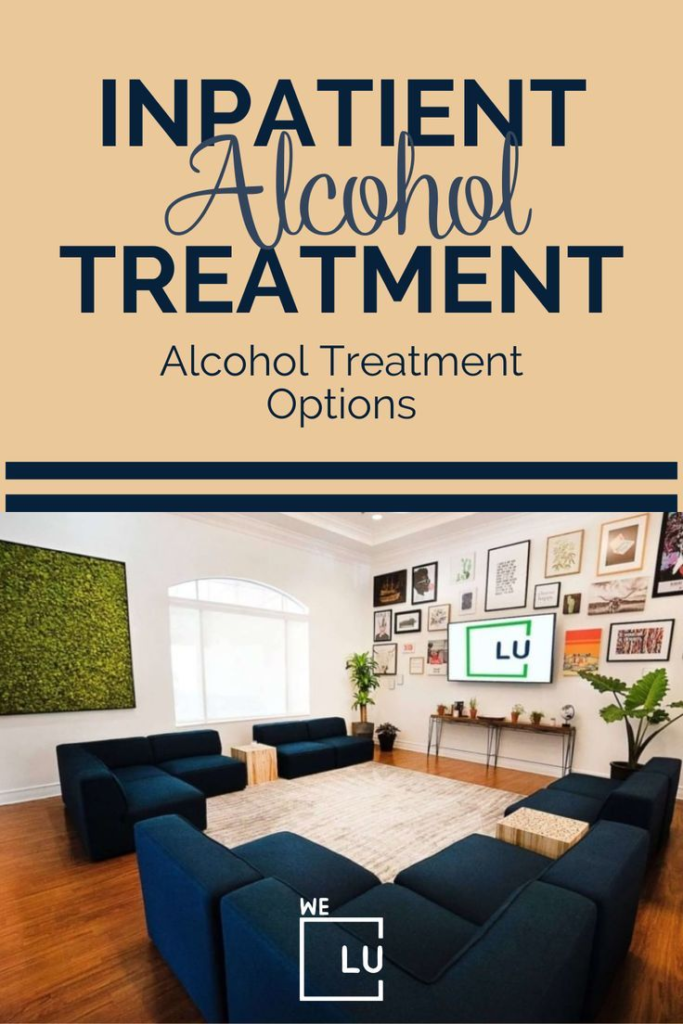
Skip To:
Learn More:
- Alcohol Detox Timeline & How To Safely Manage Alcohol Withdrawal Symptoms Treatment
- AWS or Alcohol Withdrawal Timeline Symptoms, Seizures, Signs & Alcohol Withdrawal Detox Treatment
- Alcohol Addiction Treatment, Alcoholism, Signs, Complications & Recovery Rehab Programs
- Medication-Assisted Treatment. Medication Assisted Treatment for Opioid Use Disorder, MAT Program for Alcohol, FAQs & Facts.
- Discover Top-Rated Drug & Alcohol Medical Detox Near Me, Licensed Accredited Programs. Find Top-rated “Detox Near Me” Treatment Centers.
- What Are The 3 Stages Of Addiction? Alcoholism Explained
- Alcohol Use Disorder Symptoms
- How to Flush Alcohol Out of Your System?
- How Long Does Alcohol Stay In Your System? Blood, Urine, & Breathalyzer Test
- Effective Alcohol Poisoning Treatments and Prevention
How Much Does Inpatient Alcohol Rehab Cost?
The price of inpatient alcohol rehab varies depending on the patient’s demands, insurance coverage, the amenities offered by the facility, and possibly other factors. The rehabilitation costs may be significantly decreased (if not eliminated) by health insurance.
Many rehab centers accept different forms of health insurance or offer financial aid to those in need. An individual can seek treatment near home or out of state. Moreover, out-of-state rehabs deliver many advantages, such as distancing you from stresses and triggers and allowing you to focus solely on improving.
First-class Facilities & Amenities
World-class High-Quality Addiction & Mental Health Rehabilitation Treatment
Rehab Centers TourRenowned Addiction Centers. Serene Private Facilities. Inpatient rehab programs vary.
Addiction Helpline(844) 597-1011Proven recovery success experience, backed by a Team w/ History of:
15+
Years of Unified Experience
100s
5-Star Reviews Across Our Centers
10K
Recovery Success Stories Across Our Network
- Low Patient to Therapist Ratio
- Onsite Medical Detox Center
- Comprehensive Dual-Diagnosis Treatment
- Complimentary Family & Alumni Programs
- Coaching, Recovery & Personal Development Events
Inpatient Alcohol Rehab Education and Tools
We understand that recovery is lifelong, so we do not send anyone away empty-handed. Part of the treatment process at an inpatient alcohol rehab center will educate individuals on how deeply alcoholism touches every aspect of their lives. It is an essential part of the recovery process for individuals to understand alcohol’s impact on their relationships and well-being. We will provide practical tools to continue this vital part of the process.
Post-Alcohol Treatment Care
After treatment, we continue to provide all the care necessary to ensure each person’s recovery is successful. That may include therapy, support, and additional resources. We want every one of our guests to thrive in their sobriety, and we will do everything we can to help that happen.

After finishing inpatient therapy, a patient may unavoidably encounter a range of stressors, triggers, and difficulties for which they must be prepared. These difficulties following rehabilitation might be addressed with aftercare planning. Patient and their treatment team can create a practical game plan through aftercare planning to help them stay accountable for their recovery goals.
What are the Advantages of Inpatient Alcohol Rehab Center Treatment Programs?
People may choose to prioritize inpatient or outpatient alcohol rehabilitation programs for themselves for various subjective reasons while deciding to seek treatment. However, due to their greater capacity to fully meet patients’ treatment needs, medical practitioners may occasionally strongly advise choosing an inpatient alcohol rehab treatment environment over an outpatient one.
The following factors may make inpatient alcohol rehab therapy more suited for some people:
- An individual may begin their recovery work to reconstruct their problematic patterns of behavior while undergoing inpatient alcohol rehab treatment, which is a highly regulated and immersive environment.
- Inpatient alcohol rehab allows the patients 24/7 monitoring, counseling, and access to a rigorous schedule of behavioral therapeutic programs.
- Many inpatient alcohol rehab facilities provide access to on-call medical care for those with relatively severe alcohol use disorders, acute alcohol withdrawal dangers, and substantial mental or medical health issues.
- Someone may benefit from a healthy distance from their previous living situation if they receive alcohol misuse treatment in an inpatient setting. An inpatient alcohol rehab program could be a good choice if a person’s home environment is unstable and they don’t have access to dependable transportation or the sober support they need to complete alcohol use disorder treatment on an outpatient basis successfully.
- Programs for inpatient alcohol rehab can address issues other than alcohol use disorders. For instance, many of the several addiction treatment facilities operated by We Level Up treat patients who also have co-occurring mental health disorders by providing professional and vocational services and advice and placing a solid emphasis on reunifying families.
What Happens in Inpatient Alcohol Rehab Centers?
What is inpatient alcohol rehab like? When you arrive for the inpatient rehab treatment, a team member will welcome you, walk you through a medical exam, take your vital signs, and evaluate your general health. You should consult with a psychiatrist or other expert in addiction medicine who will ascertain whether you have any relevant co-occurring psychological or physical issues. By doing this, your treatment team will be able to organize a personalized treatment plan for you to adhere to during your stay in rehab. Around four people attend a meeting of a support group for alcoholics.
Your first step of inpatient alcohol treatment may include a monitored medical detox if your risk of experiencing severe or complicated alcohol withdrawal is high during your initial assessment.
In alcohol treatment, there are numerous choices for both individual and group therapy. Attending 12-step meetings or participating in experiential therapies like music therapy, art therapy, or equestrian therapy may be options for you, depending on your personalized treatment plan, the range of services your institution provides, and your needs.
You may be prescribed several medications in addition to behavioral counseling as part of a medication-aided treatment (MAT) strategy to help you quit drinking and avoid relapsing. Patients in inpatient alcohol rehab are often given meals, bedding, and laundry services.
Get Help. Get Better. Get Your Life Back.
Searching for Accredited Drug and Alcohol Rehab Centers Near You?
Even if you have failed previously and relapsed, or are in the middle of a difficult crisis, we stand ready to support you. Our trusted behavioral health specialists will not give up on you. When you feel ready or just want someone to speak to about therapy alternatives to change your life call us. Even if we cannot assist you, we will lead you to wherever you can get support. There is no obligation. Call our hotline today.
(844) 597-1011Types Of Inpatient Alcohol Rehab Programs
Inpatient alcohol recovery programs are classified into inpatient residential rehab and partial hospitalization. Your doctor may prescribe one type of rehab over another depending on the severity of your alcoholism, the length of time you’ve been drinking, your financial circumstances, and other factors. Before making a selection, consider the benefits of each option, the types of therapies available, the duration of the program, and if financial support is available.
Options for Finding Alcohol Inpatient Rehab Centers
The best treatment option for a person may depend on several things. For instance, the decision may be influenced by a person’s gender, age, insurance status, location of the institution, co-existing medical issues, medical/psychological evaluation, and other needs. People can make this selection more easily if they are prepared with the right questions to ask of rehab facilities.
Questions to ask when deciding which inpatient alcohol rehab is best for you:
- Does the facility have qualified medical staff and licensed doctors?
- Does the treatment center have accreditation, such as from the Joint Commission, demonstrating its dedication to healthcare standards and patient safety?
- Does the facility provide support for prevention?
- Is medical detoxification offered at the facility?
- Does the center provide evidence-based therapy?
- What levels of care does the facility provide?
How Long is Inpatient Alcohol Rehab?
Residential Inpatient Alcohol Rehab Center Treatment Timeline.
How long is an inpatient alcohol rehab stay? Generally, inpatient alcohol rehab residential facilities offer 30, 60, and 90-day programs. You will be required to remain on-site during your treatment. This is the most intensive form of therapy. It is particularly effective in treating persons with severe alcoholism.
Detox, the initial stage of the recovery process, is usually included in the first week of inpatient residential rehab. This completely removes alcohol from your body, so you are no longer affected by its effects. Following that, you will continue your rehabilitation with an organized daily routine of therapies intended to guide you on how to conquer alcoholism and sustain long-term sobriety.
However, when considering how long is inpatient alcohol rehab, one must not forget that before residential treatment, an alcohol detox program must be completed first. Should there be complications, this may extend your treatment timeline.
How long is inpatient alcohol rehab? The answer to this may also vary depending on the severity of your alcohol addiction.

30-Day Alcohol Rehab Programs vs. 28-Day Program Alcohol Rehab
Although both a 28-day program alcohol rehab and, similarly, a 30-day alcohol rehab programs are most commonly found at most inpatient alcohol rehab programs, there are more extended treatment options based on individualized needs.
Inpatient Alcohol 90-Day Rehab
A 90-day rehab program is a course of therapy for substance misuse. However, not all 90-day treatment programs last precisely 90 days. Most last for roughly three months on average. While each drug rehab will be a little different, most mix behavioral interventions with medical therapies, including medication, to provide you with the individualized care you require to recover.
Inpatient Alcohol Rehab Center Alcohol Partial Hospitalization Programs
A partial hospitalization program is a hybrid of inpatient and outpatient care. Although it may be as intensive as an entire hospital environment, partial hospitalization programs allow you to return home every night. This therapy method is most effective for those who live nearby and have a stable environment and home.
While the treatment frequency in a partial hospitalization program varies, many programs operate daily and last six to eight hours. Individuals are allowed to go home each evening, but they are constantly watched for indicators of a potential relapse, withdrawal signs and symptoms, and other health issues.
The length of time a patient stays in the program is the main distinction between a PHP and an intense outpatient program (IOP). The (ASAM) American Society of Addiction Medicine suggests that PHPs devote 20 hours a week to programming, compared to IOPs’ 9 hours. 2 PHPs additionally provide medical and psychological assistance, although IOPs may be less inclined to do so.
PHPs typically provide care for at least five days a week. However, they occasionally provide care seven days a week. The duration of a program varies depending on the needs of each person, but the average stay is between 14 and 21 days.
Inpatient Alcohol Rehab Centers Process
There are thousands of inpatient alcohol rehab centers in the United States, some with unique services. We provide long-term and short-term alcohol addiction rehabilitation. We Level Up offers treatment programs for different lengths depending on each patient’s recovery needs. After detox, the next step is engaging in various therapeutic activities such as yoga, chiropractic, meditation, massage treatment, biofeedback, writing, etc. This enables the patient to comprehend his addiction and how to recover.
Inpatient Alcohol Rehab Center Treatment & Withdrawal Management
Someone may need medical detoxification at the start of their inpatient alcohol rehab stay if they have developed a substantial physical dependency on alcohol and experience alcohol withdrawal when they attempt to quit or reduce their drinking. Detoxification involves controlling any acute intoxication that may still be present and retreating once the body has cleared itself of a substance’s damaging consequences (in this case, alcohol).
Inpatient detoxification requires round-the-clock medical observation, support, and supervision. To keep people secure and comfortable throughout acute alcohol withdrawal, several drugs may occasionally be given with other medical treatments. The risks of withdrawal problems, including agitation and seizures, may be best handled this way.
The existence of co-occurring mental health conditions or other severe medical comorbidities, as well as a prior history of withdrawal seizures or other problems like delirium tremens, may all impact a doctor’s decision regarding the need for inpatient alcohol detox.
Alcohol Withdrawal Timeline Infographic
Due to the potential for severe withdrawal signs and symptoms, including seizures and delirium tremens (a severe form of alcohol withdrawal), it is crucial to seek inpatient alcohol rehab medical supervision and assistance when discontinuing alcohol.
Embed the below “Alcohol Withdrawal Timeline” Infographic to your Website. This alcohol withdrawal timeline infographic is provided by the We Level Up addiction treatment center team. To use the above infographics, you agree to link back and attribute its source and owner at https://welevelup.com/treatment/inpatient-alcohol-rehab/
Alcohol Withdrawal Timeline infographic image link: https://welevelup.com/wp-content/uploads/2023/03/Stages-Of-Alcohol-Withdrawal-Timeline-2-1030×1030-1-1024×1024.png
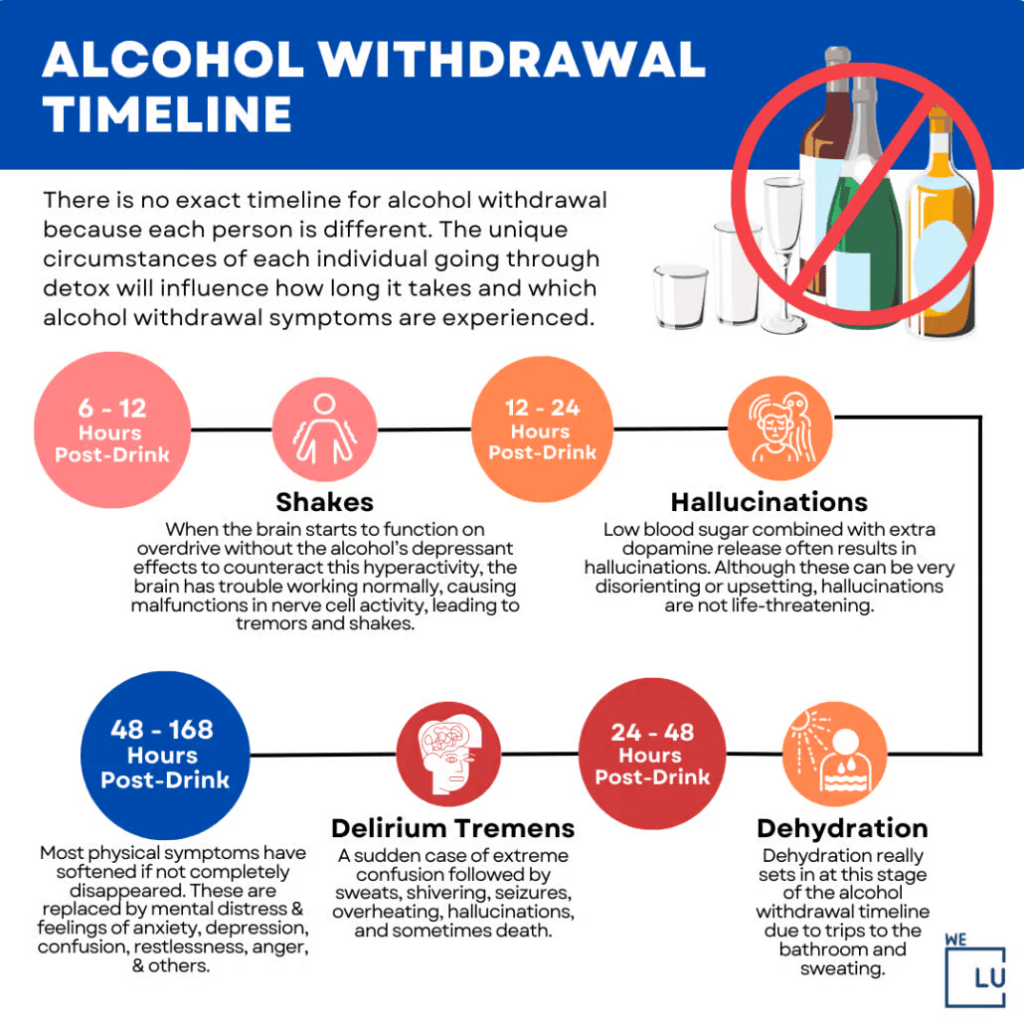
Understanding Alcoholism Drug Facts
Understanding Alcohol Use Disorder
Alcoholism, also known as (AUD) alcohol use disorder, is a broad term for any alcohol drinking that results in problems. It was previously divided into two categories, including alcohol abuse and alcohol dependence.
Alcoholism is a severe problem that can have devastating consequences. It is crucial to recognize the signs of alcoholism and get help if you or someone you know is struggling with this disease.
There are many causes of alcohol abuse, but it often starts with drinking to cope with stress or other negative emotions. Some people are more susceptible to alcoholism due to genetic factors, while others may develop it after experiencing trauma or other life-changing events. Regardless of the cause, alcoholism is a progressive disease that can ruin lives and break families.
Signs of Alcoholism
There are many signs that someone is abusing alcohol. Some of the most common ones include the following:
- Drinking more than intended or for more extended periods than intended.
- Neglecting responsibilities at work, home, or school due to drinking.
- Continuing to drink even though it is creating problems in relationships.
- Drinking in secret or hiding alcohol from others.
- Experiencing blackouts or memory loss due to drinking.
- Needing to drink more alcohol to get the same effect (tolerance).
- Experiencing withdrawal symptoms when not drinking (shakiness, sweating, nausea, anxiety, irritability).
Alcohol Rehab Inpatient Near Me
Inpatient alcohol rehab provides a structured and supportive environment for individuals struggling with alcohol addiction. It offers a range of evidence-based therapies, counseling, and medical support to address addiction’s physical, psychological, and emotional aspects. Through comprehensive treatment and personalized care, inpatient rehab can help individuals overcome alcohol dependency, develop healthier coping mechanisms, and lay the foundation for long-term recovery. Search for alcohol rehabs near you by contacting accredited and licensed treatment specialists.
Causes of Alcoholism
There is no single cause for alcohol abuse. Instead, it is the result of a combination of factors. Some of the most common causes include:
- Genetics: Alcoholism can run in families, which suggests that there may be a genetic component to it.
- Mental health: People who suffer from depression, anxiety, or other psychiatric disorders are likelier to abuse alcohol to self-medicate.
- Peer pressure: Many people start drinking alcohol because their friends or peers do it. This is especially common in adolescents.
- Stress: People under pressure (due to work, family, or other circumstances) may use alcohol to cope.
- Availability: Alcohol is legal and easy to obtain, which makes it more likely to be abused.

Alcohol Use Fact Sheet by SAMHSA
The alcohol problem remains prevalent in the United States, affecting individuals of all ages and backgrounds. Excessive alcohol consumption has various health, social, and economic consequences, including liver disease, impaired judgment, accidents, and strained relationships. Efforts such as education, prevention programs, and access to treatment and support services are crucial in addressing and reducing the impact of alcohol-related problems in the country.
Download the free pdf file below that the Substance Abuse and Mental Health Services Administration prepared for more information and resources.

Get Your Life Back
Find Hope & Recovery. Get Safe Comfortable Detox, Addiction Rehab & Dual Diagnosis High-Quality Care.
Hotline(844) 597-1011Alcohol Statistics
According to the Centers for Disease Control and Prevention (CDC), approximately 95,000 people die from alcohol-related causes each year in the United States.
25.5%
In 2019, about 25.5% of adults aged 18 and older reported binge drinking.
Source: CDC
10,142
In 2019, the National Highway Traffic Safety Administration (NHTSA) reported that alcohol-related crashes accounted for 10,142 fatalities, representing 28% of all traffic-related deaths.
Source: SAMHSA
14.5 Million
In 2019, out of the approximately 14.5 million adults aged 18 and older with an alcohol use disorder (AUD), only about 7.2% received any form of treatment.
Source: NSDUH
The We Level Up Inpatient Alcohol Rehab Center
The We Level Up rehab team is proud of its staff work history of more than 15 years of experience in alcohol and drug addiction rehabilitation. We aim to build a strong foundation with our clients to comprehend their needs and deliver effective treatment solutions. Contact our team today for further details and information regarding inpatient addiction rehab. We are available 24/7.
Inpatient Alcohol Rehab Facilities
There are several inpatient rehab facilities in the We Level Up network. If choosing a rehab facility is challenging, help is available for your peace of mind. We Level Up rehab facilities include top-rated BBB-accredited addiction treatment facilities.
Clients may schedule a tour of our rehab facilities and meet with our dedicated treatment staff. Our addiction treatment specialists are ready and available 24/7 to support and assist you in finding a facility to get you and your loved one back to sobriety.
Check our list of We Level Up inpatient alcohol rehab NJ, inpatient alcohol rehab Los Angeles, inpatient alcohol rehab New Jersey, and inpatient alcohol rehab Florida below.
To search for inpatient alcohol rehab Chicago, inpatient alcohol rehab Michigan, inpatient alcohol rehab Colorado, inpatient alcohol rehab Illinois, inpatient alcohol rehab Atlanta GA, inpatient alcohol rehab Indiana, inpatient alcohol rehab Massachusetts, inpatient alcohol rehab Virginia. You can contact us today. We can help you explore treatment options and rehabs near you. We offer free assessment, and each call is private and confidential.
Evidence-Based Inpatient Alcohol Rehab Center
We Level Up treatment modalities and apply evidence-based best practices to service improved treatment outcomes. With professional and certified alcohol addiction treatment professionals, patients can begin their rehabilitation journey without fear. Inpatient alcohol rehab centers assist patients with various alcohol addiction diagnoses and co-occurring conditions.
Inpatient Drug Rehab
When it comes to inpatient drug rehab treatment, We Level Up works to help patients achieve functional independence through therapy. In a stimulating and welcoming environment, we endeavor to deliver quality treatment focusing on each patient’s requirements. We have a dedicated and skilled team here to assist you in healing and recovering from alcoholism.
Inpatient Alcohol Rehab Center Treatments
Inpatient rehab therapy enables people to begin a new life free of addiction. It also places the patient in charge of his family, profession, and life. Every rehab has a different layout and design. At We Level Up, we have customized treatment plans according to the needs and conditions of the patient.
At the We Level Up inpatient alcohol rehab centers, each patient is treated differently during treatment. As a result, we have had tremendous success in treating certain addictions. Furthermore, we offer a variety of treatment payment plans. You will not have to worry about payments.
Long-term residential programs are also available at some inpatient treatment institutions and short-term residential programs. Individual and group therapy, as are possible behavior therapies, are both parts of the treatment process. Medication to lessen cravings may also be used in specific circumstances.
Inpatient Alcohol Rehab Center Recovery
Changing your relationship with drugs or alcohol is an essential first step toward recovery. Addiction is a disease that must be treated. Drug and alcohol rehab treatment programs can help you through sustained recovery. There are many types of therapy to treat drug and alcohol addiction.
The We Level Up alcohol addiction program can be the perfect place to start when you need inpatient alcohol rehab and detox because we have custom-tailored programs for every patient.
Do Inpatient Alcohol Rehabs Help With Co-Occurring Disorders?
People with dual diagnoses, such as anxiety and depression or co-occurring mental health issues, are frequently treated in alcohol recovery centers. A mental health disorder may worsen a substance use disorder (and vice versa).
Compared to those with an isolated substance use disorder or mental health disorder, those who struggle with co-occurring disorders may have worse treatment outcomes, higher mortality, and morbidity rates, more significant functional impairment, and even higher risk of suicide, homelessness, and incarceration. For long-term sobriety, an integrated strategy for controlling both conditions at once might produce better results.
To maximize recovery results, We Level Up’s rehab treatment facilities concurrently address co-occurring disorders and addiction.
We Level Up’s alcohol treatment facilities that provide co-occurring disorder treatment include:
- We Level Up New Jersey Rehab Detox Center.
- We Level Up West Palm Beach Rehab & Detox Center.
- We Level Up Lake Worth FL Rehab Detox Center.
- We Level Up Fort Lauderdale Mental Health Rehab Center.
- We Level Up California Rehab Detox Center.
- We Level Up Deerfield Beach Rehab Center.
An inpatient alcohol rehab facility must be able to identify and manage all the complications associated with an individual’s alcohol use problem and tailor their treatment plan appropriately, considering any medical or mental health conditions that require attention.
Inpatient Alcohol Rehab Diagnosis
Your needs and the severity of your alcohol abuse issue will determine your ideal treatment. We Level Up has skilled and accredited specialists that can evaluate your addiction and recommend the finest treatment solutions to help you recover quickly. We employ a variety of methods to diagnose addiction, including lab testing.
Inpatient alcohol treatment programs offer complete addiction treatment accessible. Patients who misuse alcohol and drugs may die as a result. Attending inpatient rehabilitation centers gives you the best opportunity of obtaining and keeping recovery. At We Level Up, the rehab center allows clients to recover with structured programs, staff support and guidance, and treatment professionals’ supervision.
The We Level Up inpatient alcohol rehab center encourages patients to participate fully in their treatment. Rehabilitation holds risks and difficulties because the craving for alcohol and other harmful addictive substances is inherent, and it is likely to impact patients without professional alcohol rehab support negatively.
Inpatient Alcohol Rehab Centers Near Me
Inpatient alcohol rehabilitation at We Level Up comes with 24/7 medical, clinical, and dual-diagnosis treatment to heal the physical and mental damage caused by alcohol addiction. With emotional support from trained staff and fellow peers, patients are given tools to begin the recovery & healing process. These combined factors make alcohol rehabilitation a successful and sufficient option for long-term and short-term alcoholic or addicted patients. Searching for “inpatient drug and alcohol rehab near me?” We Level Up can help you navigate treatment options and offer personalized treatment.
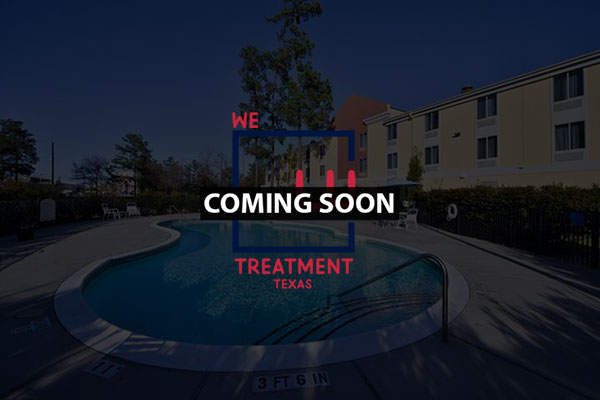
We Level Up Texas
Drug & Alcohol Addiction Treatment Center w/Detox
Licensed & Accredited w/ 5-star reviews.- Inpatient addiction rehab center w/medical detox
- Addiction treatment and detox for alcohol, benzo, heroin, opioid, and more.
- Secondary mental health treatment available as part of our dual diagnosis programs.

We Level Up California
Drug & Alcohol Addiction Treatment Center w/Detox
Licensed & Accredited w/ 5-star reviews.- Inpatient addiction rehab center w/medical detox
- Addiction treatment and detox for alcohol, benzo, heroin, opioid, and more.
- Secondary mental health treatment available as part of our dual diagnosis programs.
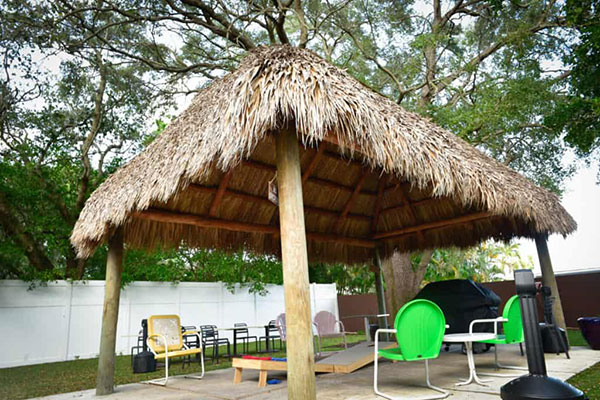
We Level Up Fort Lauderdale
Premier Behavioral Health Treatment Center
Licensed & Accredited w/ 5-star reviews.- Inpatient mental health treatment center
- Therapy for depression, anxiety, trauma, bipolar disorder, PTSD, and more.
- Dual diagnosis rehab programs available
World-class, Accredited, 5-Star Reviewed, Effective Addiction & Mental Health Programs. Complete Behavioral Health Inpatient Rehab, Detox plus Co-occuring Disorders Therapy.
CALL(844) 597-1011End the Addiction Pain. End the Emotional Rollercoaster. Get Your Life Back. Start Drug, Alcohol & Dual Diagnosis Mental Health Treatment Now. Get Free No-obligation Guidance by Substance Abuse Specialists Who Understand Addiction & Mental Health Recovery & Know How to Help.
Top 5 Inpatient Rehab Alcohol Treatment FAQs
-
How long is inpatient rehab for alcohol?
The length of inpatient rehab for alcohol is determined by several factors, including the severity of the addiction, individual progress, and the treatment program’s specific approach. In general, inpatient rehab programs can range from 28 days to several months. However, addiction recovery is a lifelong process, and the length of inpatient rehab is just one phase of the overall treatment journey.
-
How to find an inpatient alcohol rehab that accepts Medicaid?
Contact your state’s Medicaid office or visit their website to obtain a list of inpatient rehab facilities covered by Medicaid. You may also contact local addiction treatment helplines or hotlines, which can provide information on rehab centers accepting Medicaid.
-
Where to find the best inpatient alcohol rehab near me?
The “best” and “alcohol rehab centers near me inpatient” can vary based on individual preferences, treatment approaches, and personal needs. It’s essential to consider factors such as treatment philosophy, specialized programs, location, amenities, and success rates when determining the best fit for your situation.
-
How to find drug and alcohol inpatient rehab near me?
To find an “alcohol rehab near me inpatient program,” there are a few steps you can take. Start by conducting an online search using relevant keywords, such as “drug and alcohol inpatient rehab,” followed by your location. This can help you find directories or websites that list rehab centers in your area. Additionally, you can contact addiction helplines or hotlines, which are often available 24/7 and can provide information, resources, and referrals to inpatient rehab facilities near you. You can also consult with healthcare professionals, such as your primary care physician or mental health providers, who may know reputable rehab centers. Finally, consider asking for recommendations from individuals who have completed rehab or support groups focused on addiction recovery.
-
How do you enter inpatient rehab for alcoholics?
Start by contacting a reputable inpatient rehab center and undergo an assessment process. This may involve an interview and medical evaluation to determine the severity of your addiction and the appropriate level of care.
Is Inpatient Alcohol Rehab Effective? What are Treatment Levels of Care? Top Alcohol Therapy Types?
Inpatient alcohol rehab programs are highly effective in treating alcohol addiction. These programs provide a structured and supportive environment for individuals to receive comprehensive care and treatment for their addiction.
The 24/7 supervision and access to medical professionals allow for a safe detoxification process and managing withdrawal symptoms. Inpatient rehab programs also offer a range of therapies, such as individual counseling, group therapy, and behavioral interventions, which are tailored to address the underlying causes of addiction and help individuals develop coping mechanisms.
The immersive nature of inpatient rehab helps individuals focus solely on their recovery, away from triggers and temptations in their daily lives, leading to better outcomes and long-term sobriety.
Get FREE addiction treatment insurance check – https://welevelup.com/rehab-insurance/
Searching for “inpatient rehab for alcohol near me?” If you or a loved one is struggling with alcohol addiction or other substance use disorder(s), call for a FREE consultation 24/7 at (561) 678-0917
Is Inpatient Alcohol Rehab Effective? What are Treatment Levels of Care? Video Transcript.
Welcome to the We Level Up treatment center video series. In today’s video, we will discuss Inpatient Effective Inpatient Alcohol Rehab Treatment Levels of Care, Alcohol Therapy Types & Alcohol Detox Programs
Many treatment centers offer services for alcohol addiction. Usually, treatment centers provide individual counseling, group support, and detoxification services. Researching and talking to your doctor or therapist is important to determine your best treatment option.
Alcohol addiction treatment centers that offer intense inpatient alcohol rehab allow patients to live there while receiving specialized therapies. Depending on the needs of the patients and the treatment institutes, different therapies may be used in inpatient alcohol rehab. Inpatient alcohol rehab patients typically have the choice to have loved ones visit them at specific times of the day or week in addition to eating their catered meals and sleeping in their selected facility. The times of visiting and the number of visits usually depends on the patient’s progress and the type of rehab facility that they are in. The rehab facility usually establishes guidelines to ensure patients’ health and safety are top priorities.
Inpatient alcohol rehab facilities provide a method that is quite rigorous for treating alcohol addiction thanks to their strong support and daily schedule.
What is the difference between Inpatient Vs Outpatient Care?
Inpatient alcohol treatment requires the patient to stay 24/7 at the treatment center. This way, the patient is fully monitored and constantly given support and encouragement throughout treatment. Depending on the severity of the addiction, an inpatient program can last anywhere from 4 weeks to 3 months.
In contrast, outpatient alcohol treatment allows patients to attend sessions while continuing to live at home. In addition to these potential treatment specifics, a period of stay for any kind of treatment facility might be required. Studies suggest longer treatment regimens for better treatment results.
Where to Find Local Inpatient Alcohol Rehab Near Me Options?
To find local inpatient alcohol rehab options near you, the best place to start is by doing an online search. You can look for specific treatment centers or broader networks offering inpatient programs closer to your location. Additionally, you can check your local yellow pages and call the number on the back of your insurance card for more options.
If you are unsure which services are available in your area, call us at. Our team of experienced advisors is available 24 hours a day, 7 days a week, to help you find the right program for your needs. You can also visit our website, www.WeLevelUp.com, for more information. We offer a variety of resources to help you make the best decision for your unique situation.
Experience Transformative Recovery at We Level Up Treatment Centers.
See our authentic success stories. Get inspired. Get the help you deserve.
Start a New Life
Begin with a free call to an addiction & behavioral health treatment advisor. Learn more about our dual-diagnosis programs. The We Level Up Treatment Center Network delivers recovery programs that vary by each treatment facility. Call to learn more.
- Personalized Care
- Caring Accountable Staff
- World-class Amenities
- Licensed & Accredited
- Renowned w/ 100s 5-Star Reviews
We’ll Call You
Search We Level Up Inpatient Alcohol Rehab Detox, Mental Health Topics & Resources
Sources
[1] National Institute on Alcohol Abuse and Alcoholism – National Institute on Alcohol Abuse and Alcoholism (NIAAA) | National Institute on Alcohol Abuse and Alcoholism (NIAAA) (nih.gov)
[2] Florida Health – Florida Health (floridahealth.gov/index.html)
[3] National Library of Medicine – National Library of Medicine (ncbi.nlm.nih.gov/)
[4] Centers for Disease Control and Prevention – (2021) Centers for Disease Control and Prevention (cdc.gov/)
[5] U.S. Department of Health & Human Services – (2019). U.S. Department of Health & Human Services (cdc.gov/)
[6] National Institute on Drug Abuse – (2018). National Institute on Drug Abuse (nida.nih.gov/)
[7] Center for Substance Abuse Treatment – (2015). Center for Substance Abuse Treatment (samhsa.gov/)
[8] Find Treatment – Find Treatment (findtreatment.gov/)
[9] We Level Up New Jersey Rehab Detox Center – New Jersey Rehab Detox Center (welevelup.com/locations/new-jersey-rehab/)
We Level Up West Palm Beach Rehab & Detox Center – West Palm Beach Rehab & Detox Center (welevelup.com/locations/west-palm-beach-rehab-fl/)
Lake Worth FL Rehab Detox Center – Lake Worth FL Rehab Detox Center (welevelup.com/locations/florida/)
Fort Lauderdale Mental Health Rehab Center – Fort Lauderdale Mental Health Rehab Center (welevelup.com/locations/fort-lauderdale-mental-health-rehab-center/)
California Rehab Detox Center – California Rehab Detox Center (welevelup.com/locations/california-rehab/)
Deerfield Beach Rehab Admissions Office – Deerfield Beach Rehab Admissions Office (welevelup.com/locations/deerfield-beach-rehab/)
[10] Find Your Way to Alcohol Treatment | Navigator | NIAAA Available from: https://alcoholtreatment.niaaa.nih.gov/
